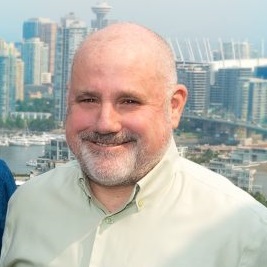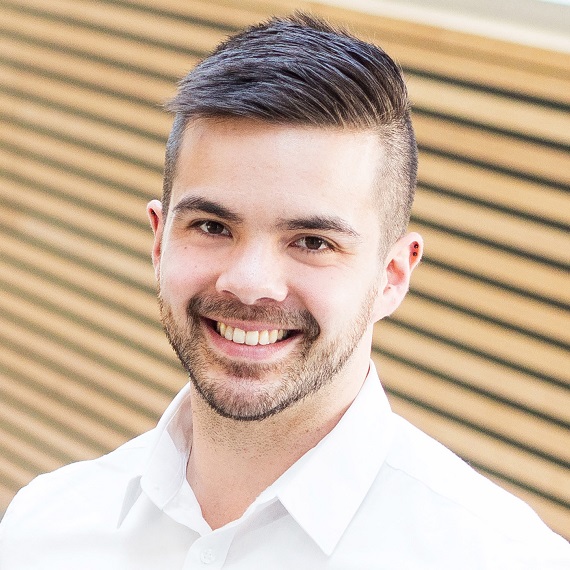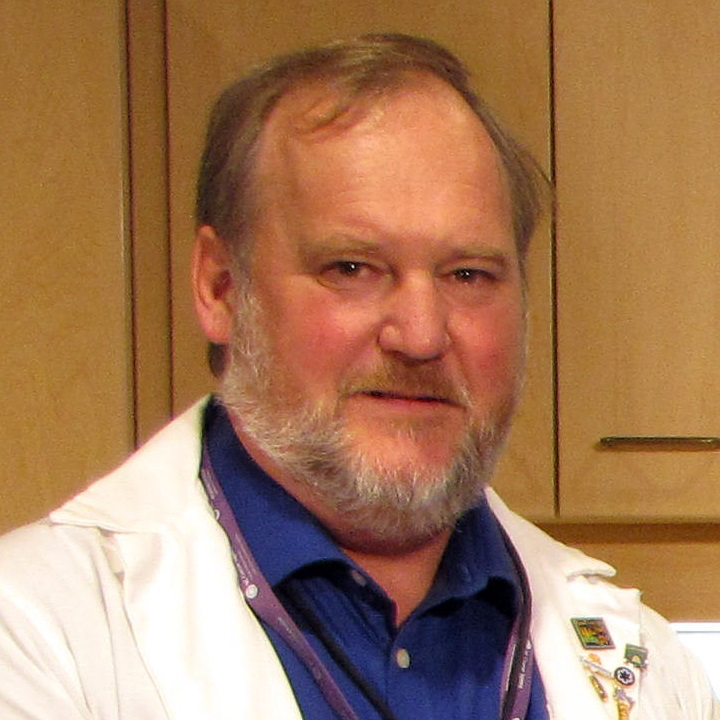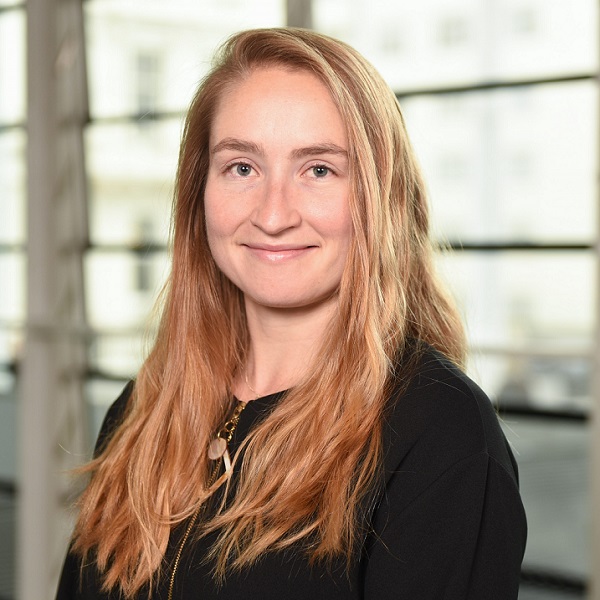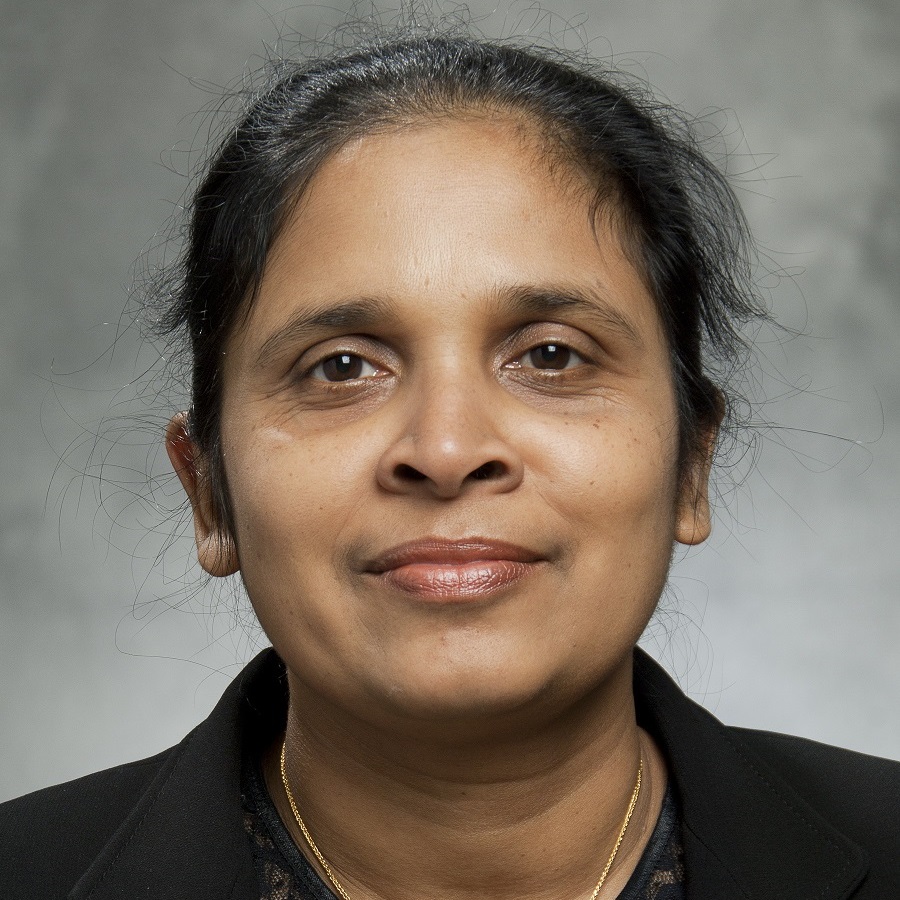RESEARCHERS (A-L)
Michael Abrams
Vice President Research, Cuprous Pharmaceuticals
Researcher
Dr. Abrams was the former President and CEO of Inimex Pharmaceuticals Inc., Chief Innovation Officer and VP for Research and Development at CDRD Ventures Inc., and Managing Director of Arbutus Bipharma Corporation.
Dr. Abrams completed his PhD in Chemistry at the Massachusetts Institute of Technology and has extensive experience working in biotechnology companies and commercialization of pharmaceutical products. Dr. Abrams was the founding CEO of AnorMED Inc. and led that company for 10 years. AnorMED developed the FDA-approved stem cell mobilizing drug, Mozobil, and was acquired by Genzyme in 2006 for over $500M.
Abraham Alexander
Radiation Oncologist, BC Cancer Agency
Researcher
Dr. Abraham Alexander is Radiation Oncologist at the BC Cancer Agency Vancouver Island Centre.
Dr. Alexander was Co-Principal Investigator for the ASSERT clinical trial, a Phase II randomized clinical trial for intermediate and high risk prostate cancer patients designed to test Stereotactic Ablative Radiotherapy (SABR) directly against traditional radiotherapy for intermediate and high-risk prostate cancer patients.
He also led a provincial program, the first in Canada, incorporating Space OAR Hydrogel into prostate external beam radiotherapy, for which he and his team were awarded the inaugural Innovation and Discovery in Action award in 2018.
Marc J. Adler
Assistant Professor, Ryerson University
Researcher
Dr. Marc J. Adler is an Assistant Professor of Chemistry at Ryerson University. He is interested in the design and synthesis of novel functional organic molecules and in greener methods for organic synthesis. His lab makes and studies molecules that are useful for various applications, including as catalysts and reagents for organic synthesis, as photo-and electroactive components of organic electronics, and as bioactive synthetic and semi-peptidic small molecules.
His lab is currently pursuing research on practical and greener organosilane reagents, catalysts, and methods for organic synthesis; porphyrin silane derivatives as novel molecules for organic electronics; peptidomimetic covalent drugs for the inhibition of protein-protein interactions (PPIs); and the chalcone/flavanone scaffold as a molecular switch bearing the unique properties of covalent dynamism controlled by a chemical stimulus and detectable by UV/Vis spectroscopy.
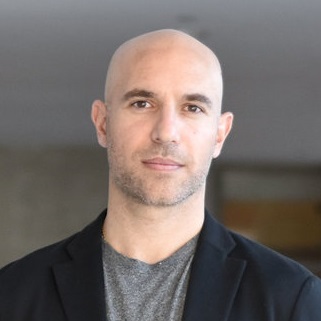
NMIN project involvement:
Co-Investigator: Customisable metallo-nanotexaphyrins for cancer imaging and therapy
Kerr Hall North 212
350 Victoria St.
Toronto, Ontario, M5B 2K3
Tel: 416-979-5000 ext 543461
marcjadler@ryerson.ca
Website
Christine Allen
Professor, University of Toronto
Researcher; former NMIN Scientific Director & CEO
Dr. Christine Allen is a Professor and the GlaxoSmithKline Chair in Pharmaceutics and Drug Delivery in the Leslie Dan Faculty of Pharmacy at the University of Toronto. She is also the university's first-ever Associate Vice-President and Vice-Provost, Strategic Initiatives, and previously served as the Associate Dean Graduate Education and as the Associate Dean Academic. Her research is focused on the rational design and development of new materials and technologies for the delivery of drugs and contrast agents.
Dr. Allen completed her doctoral research in the Department of Chemistry at McGill University and post-doctoral research in the Department of Advanced Therapeutics at the B.C. Cancer Agency. She joined University of Toronto in 2002, from Celator Pharmaceuticals Inc. (Vancouver, B.C.), where she had worked as a scientist and Assistant Director of materials research.
She has over 100 peer-reviewed publications, numerous patent applications, and nine book chapters on both lipid and polymer-based delivery systems. She has served on several peer review panels for granting agencies including CIHR, NCIC and NIH. She was awarded a CIHR-Rx&D Career Award (2004-2009) for her research on the design and development of technologies for cancer treatment in addition to many other awards.

Leslie Dan Faculty of Pharmacy
University of Toronto
144 College Street
Toronto, Ontario, M5S 3M2
Tel: 416-946-8594
cj.allen@utoronto.ca
Website
Stephane Angers
Professor, University of Toronto
Collaborator
Dr. Angers is a Professor of Pharmaceutical Sciences,
Associate Dean of Research, and Canada Research Chair in Functional Architecture of Signal Transduction Complexes at the University of Toronto. He is an expert in the field of signal transduction.
His research program seeks to understand the signalling mechanisms underlying the Wnt and Hedgehog families of growth factors. For this, he exploits functional proteomic and genomic approaches to identify novel proteins regulating these signalling pathways and studies their functions during development, tissue homeostasis and in human diseases. A major area of focus is the role of these important molecules in high fatality cancers such as Glioblastoma and pancreatic cancers.
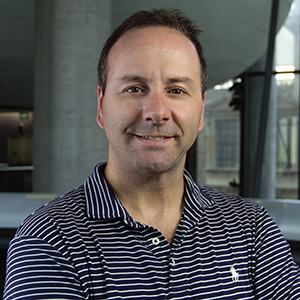
NMIN project involvement:
Collaborator: Development of an integrated chip for exosome analysis in cancer
University of Toronto
144 College Street, Rm 901
Toronto, Ontario
M5S 3M2
Tel: 416-978-4939
stephane.angers@utoronto.ca
Website
Simon Authier
Professor, Université de Montréal
Collaborator
Dr. Authier has decades of experience investigating methodologies in nonclinical regulatory safety pharmacology studies to improve study designs for optimal sensitivity and decision making.
He has overseen the conduct of preclinical studies for numerous small and large molecules. He currently oversees team of scientists and veterinarians specialized preclinical research for IND, BLA and NDA filing with a focus on pharmacology. He is a frequently invited speaker for scientific conferences.
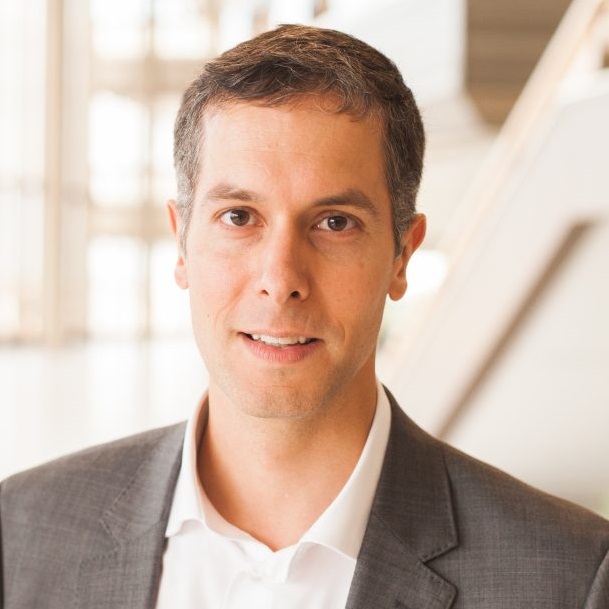
NMIN project involvement:
Collaborator: Development of an aerosolized liposomal hydroxychloroquine for treating COVID-19 patients entering hospitals
Marcel Bally
Professor, University of British Columbia
Theme 1 Leader; PharmaCore Leader
Dr. Marcel Bally is Head & Distinguished Scientist of Experimental Therapeutics for BC CANCER; Division Chair of Pharmacology and Toxicology for the Centre for Drug Research and Development; a
Professor of Pathology & Laboratory Medicine and an Adjunct Professor of Pharmaceutical Sciences at the University of British Columbia.
Dr. Bally's laboratory focuses on developing improved protocols for the treatment of cancer. Basic research interests include evaluation of novel targeted anticancer drugs. However, his group is also comprehensively pursuing combinations of existing, already approved cytotoxic agents, to demonstrate the value of pursuing anticancer drug combination products.
Dr. Bally has extensive expertise in the use of liposome drug carriers for improving the specificity of anti-cancer drugs as well as enabling the use of some exciting new biologically active agents, such as therapeutically active antibodies, nucleic acid drugs (antisense oligonucleotides and siRNA) and therapeutically active peptides.

James Baylis
Chief Executive Officer, CoMotion
Collaborator
Dr. Baylis is CEO of CoMotion Drug Delivery Systems Inc. and a Postdoctoral Fellow at Harvard Medical School.
Dr. Baylis completed his PhD in Biomedical Engineering at UBC, focusing on Biomaterial and nanomedicine for management of bleeding.
Wayne Beckham
Provincial Medical Physics Leader, BC Cancer Agency
Researcher
Dr. Beckham is Provincial Medical Physics Leader, BC Cancer Agency Vancouver Island Centre, and an Adjunct professor at the University of Victoria.
His research focuses on the application of leading edge technology to improving treatment outcomes (either increased cure rates or decreased complication rates) for radiation therapy patients. This entails significant collaboration between physicists, radiation therapists and radiation oncologists, often involving patients being treated in ethics-approved research protocols designed to assess patient outcomes.
Anna Blakney
Assistant Professor, School of Biomedical Engineering, University of British Columbia
Grand Challenges Thrust 2 (Targeted Gene Therapies) Co-leader
Dr. Anna Blakney (PhD, BSc) is Assistant Professor in the Michael Smith Laboratories and School of Biomedical Engineering at UBC. She received her BSc in Chemical & Biological Engineering from the University of Colorado at Boulder, and her PhD in Bioengineering from the University of Washington. She completed a postdoctoral fellowship at Imperial College London on the development of molecular and biomaterial engineering strategies for delivery of self-amplifying RNA, under the supervision of Prof. Robin Shattock and Prof. Molly Stevens
The Blakney Lab is a multidisciplinary group of engineers, immunologists, and molecular biologists investigating the interactions between RNA, biomaterials, and the immune system to prevent and treat disease. They aim to gain a deeper understanding of how the components of gene delivery formulations interact with the immune system in order to improve the potency and enable clinical translation. They use a variety of biochemical assays, RNA formulation approaches, nanoparticle characterization methods, imaging platforms and cell culture, human explant and animal models for their research.
Isabelle Brunette
Professor, Université de Montréal
Researcher
Dr. Isabelle Brunette is Professor in the Department of Ophthalmology, Director of the Corneal Transplant Research Unit,and holds a Charles-Albert Poissant Chair in Corneal Transplantation at the Université de Montréal. She is an ophthalmologist specializing in the cornea.
A member of the BioFemtoVision Research Program, Dr. Brunette is internationally recognized for her ophthalmic research, which focuses on optimizing the functional outcomes of corneal transplantation with leading-edge advances in tissue engineering and femtosecond laser technology.
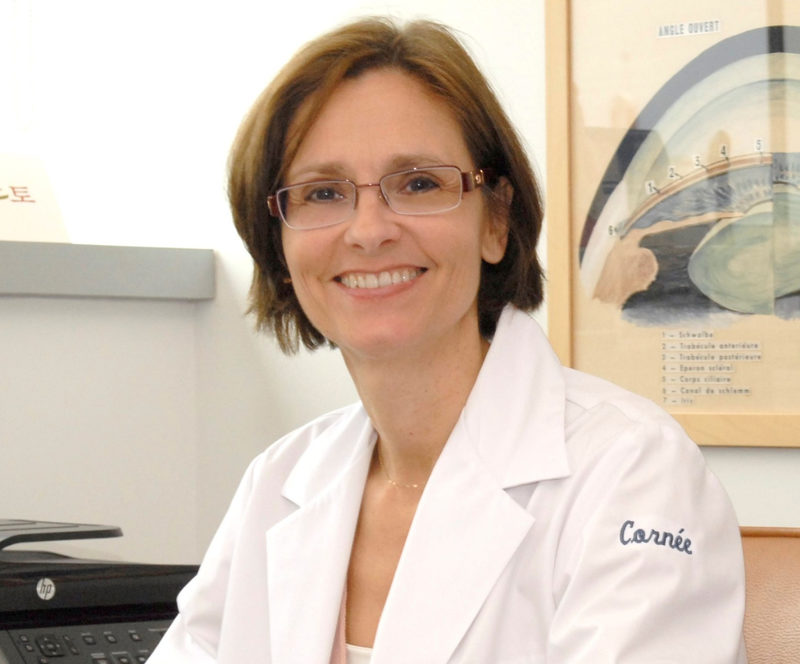
NMIN project involvement:
Co-PI: Site-specific laser-mediated gene therapy for corneal endothelial diseases
Hôpital Maisonneuve Rosemont
5415 De l’Assomption
Montréal, Québec
H1T 2M4
Tel: 514-252-3400
i.brunette@umontreal.ca
Website
Mitchell Cairo
Professor, New York Medical College
Collaborator
Dr. Cairo is Chief of Pediatric Hematology, Oncology and Stem Cell Transplantation; Director of the Children and Adolescent Cancer and Blood Diseases Center;
Associate Chairman of the Department of Pediatrics; and
Professor of Pediatrics, Medicine, Pathology, Microbiology & Immunology and Cell Biology & Anatomy at the New York Medical College.
He is an international leader in childhood lymphomas and leukemias, stem cell transplantation, developmental therapeutics, experimental hematopoiesis and immunology and stem cell biology and regenerative therapy. The Cairo Laboratory of NYMC is focused on the identification of genetic abnormalities in childhood, adolescent and young adult acute leukemias and lymphomas, and develops and investigates novel strategies of targeted therapy to unique targets and/or genetic defects.
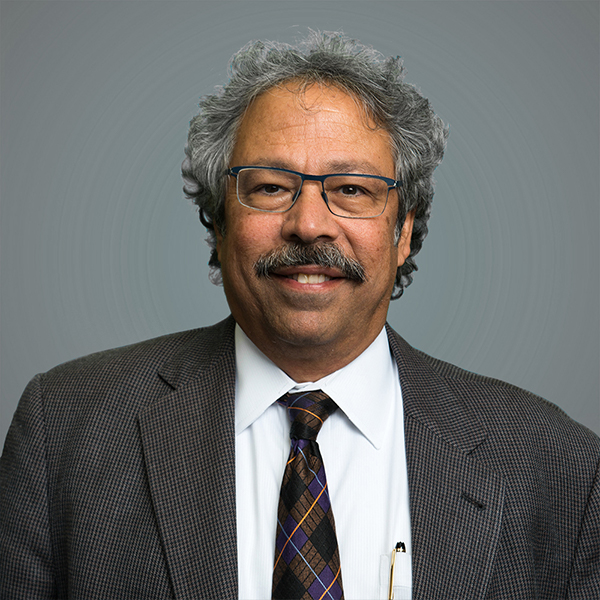
NMIN project involvement:
Collaborator: Neutrophil encapsulation platform for targeted drug delivery
Joseph Casey
Professor, University of Alberta
Researcher
Dr. Casey is a professor of Biochemistry at the University of Alberta. His laboratory focuses on membrane transport, and on the role of bicarbonate transport in causing disease in particular.
Major ongoing projects in his lab include: determining the structure and transport mechanism of the chloride/bicarbonate exchanger, AE1, which is central to red blood cell and kidney function; and understanding how defects in the transport protein called SLC4A11 cause blinding corneal diseases (Fuch's endothelial dystrophy and congenital hereditary endothelial dystrophy),

NMIN project involvement:
Co-PI: Site-specific laser-mediated gene therapy for corneal endothelial diseases
Edmonton, Alberta, Canada
T6G 2E1
Tel: 780-492-7203
joe.casey@ualberta.ca
Website
Warren Chan
Professor, University of Toronto
Researcher
Dr. Warren Chan is Director of the Institute of Biomaterials and Biomedical Engineering, Distinguished Professor of Nanobioengineering, and Canada Research Chair in Nanobioengineering at the University of Toronto.
Dr. Chan is an internationally recognized, leading researcher in the area of nanoengineering. His lab is developing nanotechnology for the diagnosis and treatment of cancer and infectious diseases. He has published over 100 peer-reviewed research articles, seven book chapters, and one book. He has been cited over 46,000 times, given 142 invited presentations and holds 15 patents/provisional patents.
He has received the Kabiller International Nanomedicine Award (2015) and the NSERC E.W. Steacie Fellowship (2012). He is an associate editor of ACS Nano.
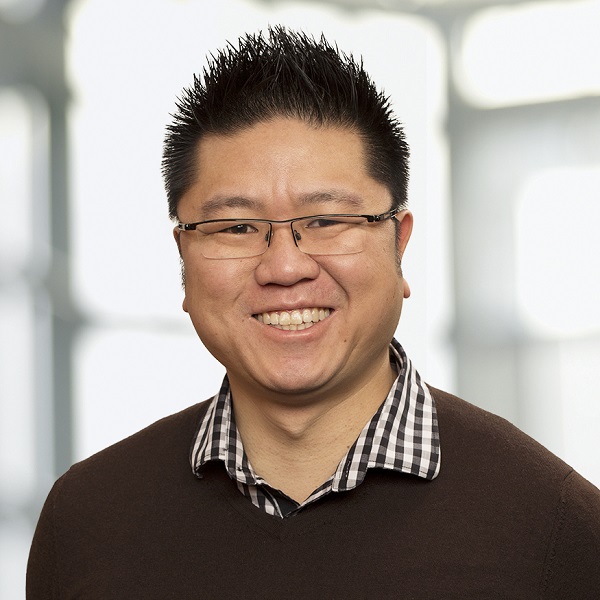
NMIN project involvement:
PI: Predicting nanoparticle tumour delivery via serum protein adsorption
Toronto, Ontario M5S 3G9
Tel: 416-946-8416 warren.chan@utoronto.ca
Website
Ghania Chikh
Scientific Advisor, Cuprous Pharmaceuticals
Collaborator
Dr. Chikh has over 21 years experience in immunotherapy-based drug development, acquiring her experience in both academic and biopharmaceuticals/biotechnology settings.
She served as a Senior Director of pre-clinical research at Engene Inc., managing development of a non-viral gene therapy for localized expression of immunomodulatory proteins to mucosal tissues for inflammatory diseases and cancer treatments.
Dr. Chikh previously worked as a senior member of the R&D team for Pfizer developing vaccines against infections, allergies, addictions and cancers. She also held positions at INEX Pharmaceuticals (currently Arbutus) and Coley Pharmaceuticals, was a Research Fellow at the BC Cancer Agency, and has invented/co-invented several patents in the immunotherapy field.

NMIN project involvement:
Collaborator: Development of an aerosolized liposomal hydroxychloroquine for treating COVID-19 patients entering hospitals
Devika Chithrani
Professor, University of Victoria
Researcher
Dr. Devika Chithrani is a professor at the University of Victoria and directs the state-of-the-art Nanoscience and Technology Development Laboratory. She is also part of the medical physics faculty at the British Columbia Cancer agency. Dr. Chithrani leverages nanotechnology to create innovations that advance the care of cancer patients.
She is using gold nanoparticles as a radiation dose enhancer in cancer therapy. This work is featured on the cover of radiation research journal and was also awarded the Michael S. Patterson publication prize in 2018 by the Canadian organization of medical physicists. She has developed three dimensional tumor models to optimize Bio-Nano interface in cancer therapy. This work is featured twice on the cover of Nano-Micro Letters journal.
Dr. Chithrani was awarded the faculty gold medal and the gold medal for physics when she received her bachelor’s degree in physics. She was awarded with many fellowships by Natural Sciences and Engineering Research Council of Canada to conduct her graduate and post-doctoral work at University of Toronto, Canada. Following a successful completion of her doctoral work in quantum physics, she was awarded one of the most prestigious awards in Canada, the NSERC PDF, to continue her post-graduate research in the field of biomedical sciences at the department of Biomedical engineering, university of Toronto.
Dr. Chithrani is a leader in the field of nanotechnology and her publications have received over 10,000 citations in few years. Dr. Chithrani has earned a strong international reputation for her innovative research through her many review articles, book chapters, and invited presentations. Her passion is to develop smart nanomaterials to improve exiting cancer therapeutics.
<!-- Dr. Devika Chithrani is Associate Professor in the Department of Physics & Astronomy and Director of the Nanoscience and Technology Development Laboratory at the University of Victoria.Dr. Chithrani leverages nanotechnology to create innovations that advance the care of cancer patients. She is using gold nanoparticles as a radiation dose enhancer in cancer therapy and she is improving the control we have over highly toxic anticancer drugs used in chemotherapy by developing gold nanostructures and testing their intracellular effect.
She showed for the first time that gold nanoparticles can be used as a radiation dose enhancer at clinically relevant MeV energies; this work was featured on the cover of the Journal of Radiation Research in 2010. She has also developed three-dimensional tumor models to optimize the use of nanotechnology in cancer therapy; this work was featured on the cover of Nano-Micro Letters.
Dr. Chithrani is considered a leader in the field of nanotechnology. Her publications have received over 9500 citations in few years.
-->Quincy Chu
Associate Professor, University of Alberta
Researcher
Dr. Chu is an Associate Professor in the Faculty of Medicine & Dentistry at the University of Alberta, and an investigator in the Oncology Department of the Cross Cancer Institute.
He is a medical oncologist who specializes in thoracic malignancies as well as early-phase clinical trials. He is an investigator with the Cross Cancer Institute’s New Drug Development Program, and is also the CCTG Investigational New Drug Committee Chair.
His main research interests include thoracic malignancies and sarcomas; Phase I/II clinical trials of innovative anti-cancer agents; and the molecular determinants of response and toxicities of innovative anti-cancer agents.

NMIN project involvement:
Co-PI: Nano-delivery of novel inhibitors of DNA repair for enhanced therapy in head & neck cancer
Marco Ciufolini
Professor, University of British Columbia
Researcher
Dr. Ciufolini is a Professor and Canada Research Chair in synthetic organic chemistry in the Department of Chemistry at the University of British Columbia. He is a leading expert in organic chemistry with significant expertise in medicinal chemistry.
His research interests center on the chemical synthesis of nitrogenous natural products and span natural products chemistry, synthetic methodology, and medicinal chemistry.
He has various awards to his credit, including most recently, the 2013 Canadian Society for Chemistry R.U. Lemieux Prize.
He is co-founder of Integrated Nanotherapeutics and of AB Science, SA. The latter company was created to commercialize one of the drugs he invented: the tyrosine kinase inhibitor, Masitinib®, which is in Phase III trials for various cancerous and degenerative conditions.
He is also a co-founder of Chrysalon SA, and Global Pharmaceutical Consulting, Inc., and is a consultant in medicinal and process chemistry for several pharmaceutical laboratories in the US and in Europe.
Dr. Ciufolini's research on new reactions for the assembly of nitrogen-containing compounds and on the total synthesis of nitrogenous natural products is described in over 130 peer-reviewed articles and 7 book chapters. He is also an inventor on over 30 patents.

NMIN project involvement:
PI: Synthesis and Evaluation of Novel Sulfur-Containing Lipids
Co-Investigator: Targeting the NLRP3 inflammasome with lipid nanoparticles for the treatment of type 2 diabetes
Vancouver Campus
2036 Main Mall
Vancouver, BC Canada V6T 1Z1
Tel: 604-822-2419
ciufi@chem.ubc.ca
Website
Samuel Clarke
Director of R&D, Precision NanoSystems Inc.
Collaborator
Dr. Clarke is Director of R&D at the Vancouver-based biotechnology company Precision NanoSystems Inc. He was formerly Associate Director of Cell Separation & Nanoparticle Chemistry with STEMCELL Technologies.
He conducted postdoctoral research at Ecole Normale Supérieure focused on R&D of fluorescent nanoparticle probes for single molecule biological imaging, after completing his PhD in Biomedical Engineering at McGill University.
NMIN project involvement:
Collaborator: Single-particle measurements to enable rational design of lipid nanoparticle carriers for gene therapies and vaccines
Pieter Cullis
Professor, University of British Columbia
Researcher; Theme 2 Leader; NanoCore Leader
Dr. Cullis is a Professor of Biochemistry and Molecular Biology in the Faculty of Medicine at UBC. He is also the Director of the NanoMedicines Research Cluster and Founding Director of the Centre for Drug Research and Development.
His laboratory has been responsible for fundamental advances in the generation, loading and targeting of liposomal systems for intravenous delivery of conventional and genetic drugs. This work has led to two products that have been approved by regulatory agencies in the U.S. and Europe for the treatment of cancer and its complications, one that is in late-stage (Phase III) clinical trials and two more that are about to enter Phase I studies.
From 1987 to 1991, Dr. Cullis was President and Director of The Canadian Liposome Company Inc. (CLC), a company he co-founded. CLC was a subsidiary of The Liposome Company Inc. (TLC, Princeton, NJ). Dr. Cullis has also played a founding role in Inex Pharmaceuticals Corp. (Director and CSO 1992-2004), Lipex Biomembranes Inc. (Director and Chairman, 1985-2000), Northern Lipids Inc. (Director and Chairman, 2005 onwards) and Protiva Biotherapeutics Ltd. (Director 2001-2005 and Chairman, Scientific Advisory Board).
He has published over 300 scientific articles and is an inventor on over 30 patents. Dr. Cullis was awarded the Ayerst Award by the Canadian Biochemical Society in 1986, the B.C. Science Council Gold Medal for Health Sciences in 1991, the Alec D. Bangham Award for contributions to liposome science and technology in 2000, the B.C. Biotechnology Association award for Innovation and Achievement in 2002, was elected a Fellow of the Royal Society of Canada in 2004 and was awarded the Barre award for contributions to Pharmaceutical Sciences by the University of Montreal in 2005. Dr. Cullis also received the UBC Alumni Award for Research in Science and Medicine in 2005. In 2011, Dr. Cullis won the prestigious Prix Galien Canada award and the Bill and Marilyn Webber Lifetime Achievement Award.
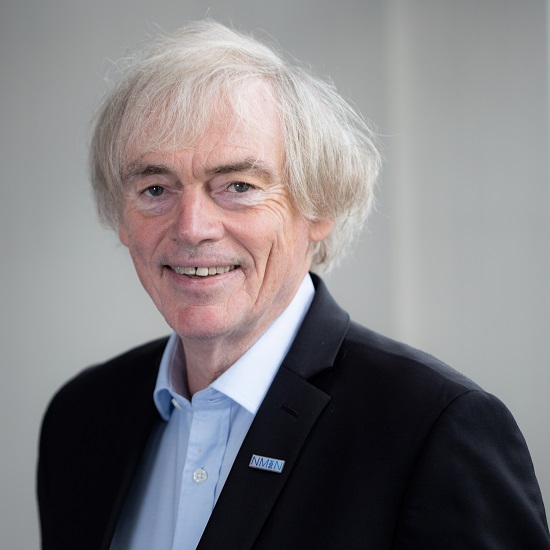
NMIN project involvement (PI and Co-PI only):
PI: Triggered release of anticancer drugs from LNP systems
PI: GeneCure: Application of Lipid Nanoparticle Technology to Gene Therapies in a Variety of Tissues
PI: NanoCore: Translational NanoMedicine Formulation and Characterization Core Facility
Co-PI: Targeting myeloid leukemia with nanomedicines
Co-PI: Targeting the NLRP3 inflammasome with lipid nanoparticles for the treatment of type 2 diabetes
Note: Dr. Cullis is also an investigator or collaborator on various other NMIN projects.
Tel: 604-822-4144 pieterc@mail.ubc.ca
Website
Nancy Dos Santos
Program Director, BC Cancer Agency
Researcher
Dr. Dos Santos is Director of Pharmacology for the Investigational Drug Program in the Department of Experimental Therapeutics at the BC Cancer Agency, where she is also Research Administrative Manager.
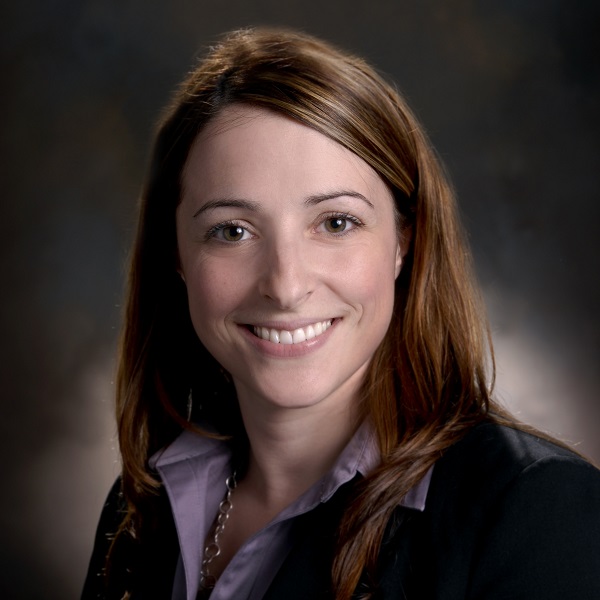
NMIN project involvement:
Co-Investigator: PharmaCore: Preclinical Scale-up Manufacturing & Project Management Core Facility
675 West 10th Avenue
Vancouver, BC V5Z 1L3
Tel: 604-675-8022
ndossantos@bccrc.ca
Andreas Dahlin
Associate Professor, Chalmers University of Technology
Collaborator
Dr. Dahlin's research interests include nanotechnology, soft matter and molecular biology. He works with biointerfaces (where biology meets the artificial) and nanoscale devices. His expertise is mainly in biophysics, polymer physics, surface chemistry, nanofabrication, electrochemistry and optics.
In 2015 Dr. Dahlin became a Wallenberg Academy Fellow; in 2017 he was awarded a Starting Grant and a framework grant from the Swedish Foundation for Strategic Research; and in 2020 he received an ERC Consolidator grant, facilitating his continuing research on chemically modified nanostructures for bioanalytical applications.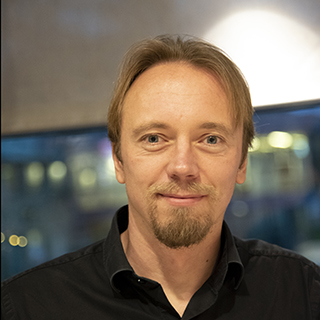
NMIN project involvement:
Collaborator: Single-particle measurements to enable rational design of lipid nanoparticle carriers for gene therapies and vaccines
Janet Dancey
Professor, Queen's University
Collaborator
Dr. Dancey is Director, Canadian Cancer Trials Group; Scientific Director, Canadian Cancer Clinical Trials Network; Edith and Carla Eisenhauer Chair in Clinical Cancer Research; Ontario Institute for Cancer Research Clinician Scientist; and Professor, Department of Oncology, Queen’s University.
She was previously Associate Chief, Investigational Drug Branch, CTEP, US-NCI, where she coordinated the development of over 200 phase 1-3 trials of experimental therapeutics, including trials of novel targeted agent combinations and biomarker studies.
Dr. Dancey has special expertise in new anti-cancer drug development, linking drug and biomarker development, and associated clinical trials methodology.

NMIN project involvement:
Collaborator: COVID-19 Therapeutics
10 Stuart St
Queen’s University
Kingston, ON, Canada, K7L 3N6
Tel: 613-533-6430
Roy Duncan
Professor, Dalhousie University
Collaborator
Dr. Duncan is Professor and Killam Chair in Virology, in the Department of Microbiology & Immunology, Department of Pediatrics, of Dalhousie University.
His research interests encompass: protein-mediated cell-cell membrane fusion during viral infections and muscle cell differentiation; viral fusion protein structure and function; cellular pathways involved in cell-cell fusion; exosomes and nonenveloped virus transmission; and oncolytic viruses for tumour therapy. His research group discovered the reovirus fusion-associated small transmembrane (FAST) proteins, a novel family of virus-encoded fusogens that mediate cell-cell membrane fusion.
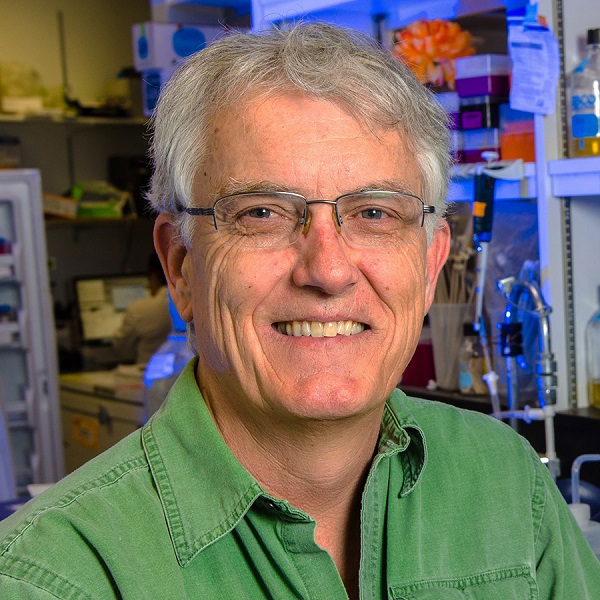
NMIN project involvement:
Co-Investigator: Development of a targeted FAST-LNP formulation of cabazitaxel to improve efficacy and safety for prostate cancer treatment
Jan Dutz
Professor, University of British Columbia
Collaborator
Dr. Dutz is Departmental Head and Professor of Dermatology and Skin Science in the Faculty of Medicine at the University of British Columbia. He is also an investigator BC Children's Hospital and a Senior Scientist with the Child and Family Research Institute (CFRI).
Dr. Dutz is a rheumatologist and dermatologist with a special clinical interest in the cutaneous manifestations of autoimmunity. His laboratory is engaged in studies to optimize the use of the skin as an organ to alter systemic immune responses. In separate projects, they are studying the priming or activation of T cells involved in models of systemic lupus erythematosus and juvenile onset diabetes mellitus.

NMIN project involvement:
Collaborator: GeneCure: Application of lipid nanoparticle technology to gene therapies in a variety of tissues
Adrian Fairey
Assistant Professor, University of Alberta
Collaborator
Dr. Fairey is a urologic surgeon and Assistant Professor in the Division of Urology of the Department of Surgery at the University of Alberta.
Dr. Fairey’s main areas of expertise include radical surgical procedures for bladder, prostate, and kidney cancers as well as reconstructive surgery of the lower urinary tract following radical cystectomy or pelvic exenteration. He has a special interest in function-sparing procedures (including advanced reconstructive techniques that re-create the natural urination pathway after bladder removal – continent urinary diversion) to optimize quality of life after surgery.
Dr. Fairey is actively involved in clinical and translational research studies in patients with bladder, prostate, and kidney cancers.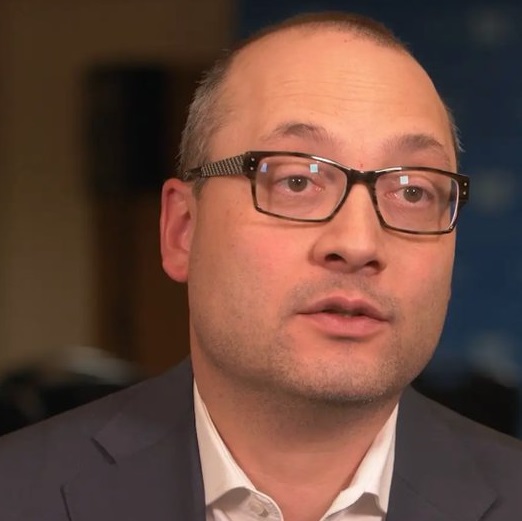
NMIN project involvement:
Collaborator: Development of a targeted FAST-LNP formulation of cabazitaxel to improve efficacy and safety for prostate cancer treatment
Marianna Foldvari
Professor, University of Waterloo
Collaborator
Dr. Marianna Foldvari is the Canada Research Chair in Bionanotechnology and Nanomedicine and a Professor of Pharmaceutical Sciences at the University of Waterloo’s School of Pharmacy.
Dr. Foldvari is an internationally recognized expert in nanomedicine. Her expertise is in pharmaceutics, dosage form and drug delivery system design (dermal, transdermal, transmucosal, ocular, intranasal, injectables and needle-free) nanotechnology, non-viral delivery methods and vaccine development.
She has over 20 years of experience as an academic researcher and in research and development in the pharmaceutical industry through technology transfer activities. Her research program focuses on the development of intelligent and non-invasive drug delivery systems design for protein drugs, gene therapy and pharmaceutical development of nano-enabled products.
Dr. Foldvari developed Biphasix™, a needle-free drug delivery system for dermal delivery of drugs. Important characteristics of the delivery system are improved drug encapsulation and drug permeation through the skin.
She is Associate Editor of Nanomedicine: Nanotechnology, Biology and Medicine, Editorial Board Member and Hot Topic Editor for Current Drug Delivery, the Journal of Nanomedicine and Biotherapeutic Discovery, the Journal of Bionanoscience and the International Journal of Pharmaceutical Compounding.
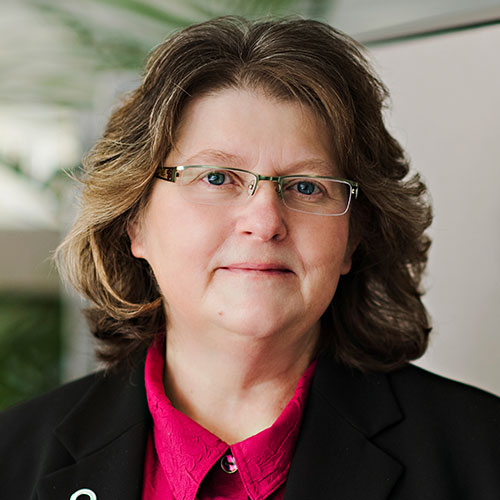
NMIN project involvement:
Collaborator: GeneCure: Application of lipid nanoparticle technology to gene therapies in a variety of tissues
Collaborator: Site-specific laser-mediated gene therapy for corneal endothelial diseases
Collaborator: NanoCore: The Translational NanoMedicines Formulation & Characterization Core Facility
200 University Avenue West
Waterloo, ON N2L 3G1
Tel: 519-888-4567 ext. 21306
foldvari@uwaterloo.ca
Website
Volker Gerdts
Professor, University of Saskatchewan
Researcher
Dr. Gerdts is a Professor in the Department of Veterinary Microbiology and the Director and CEO of the Vaccine and Infectious Disease Organization-International Vaccine Centre (VIDO-InterVac) at the University of Saskatchewan.
Dr. Gerdts' expertise is in the area of human and livestock vaccines, mucosal immunology, and vaccine delivery and formulation. HIs current research interests include: the development of neonatal vaccines; innate immunity at the respiratory surfaces (antimicrobial peptides); basic mechanisms of intestinal immunity; lymphocyte trafficking; mucosal immunology; chemokines; enteric infections; and knowledge transfer of basic research into applied clinical research and producers.
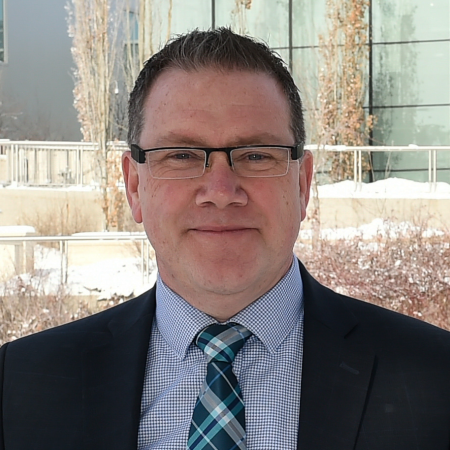
NMIN project involvement:
Co-PI: Lipidic nanoparticle formulation of a triple adjuvant for intranasal vaccines
Igor Gonda
Founder and CEO, Respidex LLC
Collaborator
Igor Gonda is the founder of Respidex LLC – a consulting firm assisting pharmaceutical companies in corporate strategy, including R&D program design, collaborations with patient advocacy groups, regulatory process, intellectual property management, financing and business development.
His current research interests include use of large health-related data bases (“cloud medicine”) to develop better products cheaper and faster; diagnostic methods to detect early signs of evolution of severe respiratory diseases; and management of the respiratory microbiome
He was previously in various executive roles (Chief Scientific Officer, CEO and President) at Aradigm Corporation – a US company developing inhalation therapies for the prevention and treatment of serious respiratory and systemic diseases, with a focus on products that would optimally meet the needs of patients to help them manage their health.
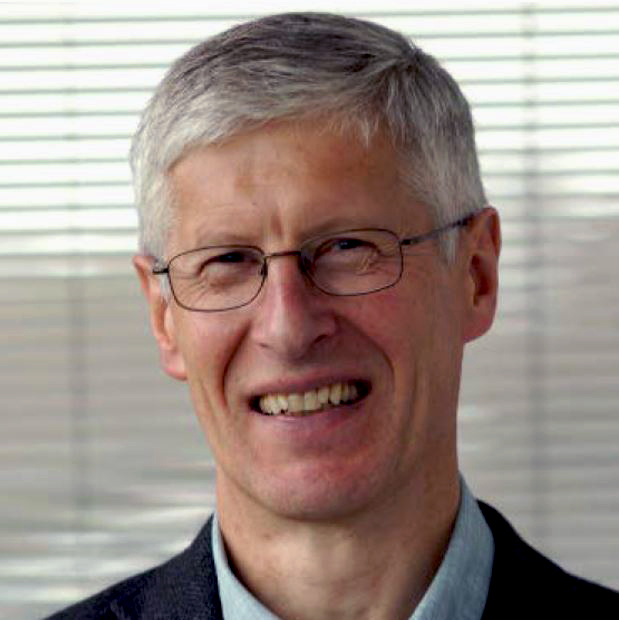
NMIN project involvement:
Collaborator: Development of an aerosolized liposomal hydroxychloroquine for treating COVID-19 patients entering hospitals
Azita Haddadi
Associate Professor, University of Saskatchewan
Researcher
Dr. Haddadi is an associate professor of Pharmacy and a member of the Drug Discovery and Development Research Group at the University of Saskatchewan. She serves on the Board of Directors of the Canadian Chapter of Controlled Release Society.
Dr. Haddadi’s research program focuses on overcoming the ongoing challenges in cancer therapy. The main emphasis of this research is to develop new biomedical and pharmaceutical nanotechnology strategies to achieve the critical issues in cancer chemo-immunotherapy.
Her research activities span the following areas: formulation and characterization of polymeric nanomaterials and protein therapeutics; siRNA/Oligonucletide delivery in cancer treatment; targeted delivery systems for pharmaceutical applications (topical, iv. or sc. administration); receptor-mediated nanoparticles for vaccine delivery; and receptor-based tumor targeting for chemotherapy.
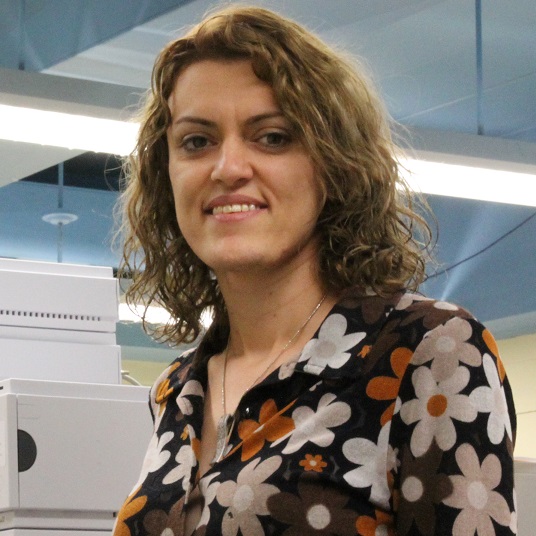
NMIN project involvement:
Co-Investigator: Nanoparticle formulations for anti-inflammatory IDR peptides
107 Wiggins Road
Saskatoon SK, S7N 5E5
Tel: 306-966-6495
azita.haddadi@usask.ca
Website
Andrew Halayko
Professor, University of Manitoba
Researcher
Dr. Halayko is a Professor in the Departments of Physiology and Pathophysiology, of Pediatrics and Child Health, and of Internal Medicine, and is Canada Research Chair in Airway Cell and Molecular Biology, at the University of Manitoba. He is also Leader of the Biology of Breathing Theme of CHRIM, co-Leader of the DEVOTION Network, and a Principal Mentor of the The Canadian Institutes of Health Research (CIHR) Strategic Training Program in Allergy and Asthma.
His lab's translational research program on asthma pathophysiology supports the development of new therapies, and understanding mechanisms for disease origins in children. He and his team generate new fundamental knowledge of cell and molecular mechanisms using human cell cultures, and assess relevance in pre-clinical research with small animal models and human subjects.
Dr. Halayko's researc interest are in asthma biology and pathophysiology; the developmental origins of lung disease; and air pollution, tobacco and cannabis smoke exposure in infant lung health.
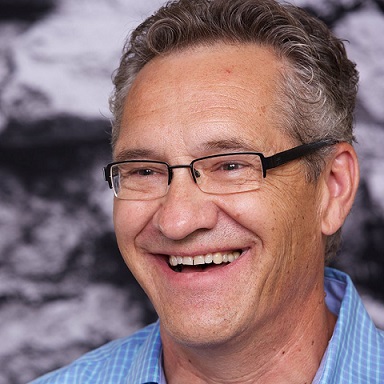
NMIN project involvement:
Co-Investigator: Nanoparticle formulations for anti-inflammatory IDR peptides
715 McDermot Ave
Winnipeg, MB R3E 3P5
Tel: 204-480-1327
andrew.halayko@umanitoba.ca
Website
Dennis Hall
Professor, University of Alberta
Researcher
Dr. Hall is a professor of Chemistry at the University of Alberta. His research interests are focused on the development of new reactions and strategies to access functional molecules with potential uses in biology and medicine, to which end he explores applications of organoboron compounds using both rational design and combinatorial strategies.
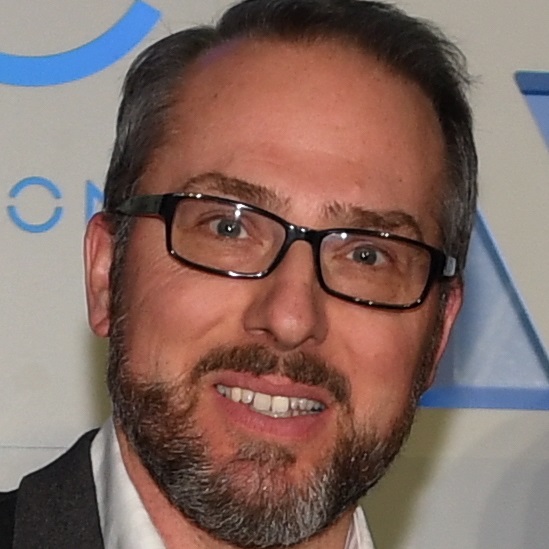
NMIN project involvement:
Co-PI: Nano-delivery of novel inhibitors of DNA repair for enhanced therapy in head & neck cancer
University of Alberta
Edmonton, Alberta T6G 2G2
Tel: 780-492-3141
dennis.hall@ualberta.ca
Website
Robert Hancock
Professor, University of British Columbia
Researcher
Dr. Robert E. W. Hancock is a Canadian microbiologist and University of British Columbia (UBC) Killam Professor of Microbiology and Immunology, Director of the UBC Centre for Microbial Diseases and Immunity Research (CMDR), an Associate Faculty Member of the Wellcome Trust Sanger Institute, and a Canada Research Chair in Health and Genomics.
Dr. Hancock is considered a world leader in his field and is well known for his work on cationic host defence (antimicrobial) peptides and finding alternative treatments for infections in the light of antibiotic resistance. He is the co-founder of Migenix, Inimex Pharmaceuticals, ABT Innovations, Sepset and the Centre for Drug Research and Development.
Dr. Hancock has received numerous awards and honours including: the Prix Galien, the Killam Prize, the Michael Smith CIHR Researcher of the Year award, and the ICAAC Aventis Antimicrobial Research Award. In 2001 he was inducted as an Officer of the Order of Canada.

NMIN project involvement:
PI: Nanoparticle formulations for anti-inflammatory IDR peptides
Co-Investigator: Lipidic nanoparticle formulation of a triple adjuvant for intra-nasal vaccines for pertussis and influenza
Collaborator: NanoCore: Translational NanoMedicine Formulation and Characterization Core Facility
Collaborator: Neutrophil encapsulation platform for targeted drug deliveryKenneth Harder
Associate Professor, University of British Columbia
Researcher
Dr. Kenneth Harder is Associate Professor in the Laboratory for Host-pathogen Immunogenetics, in the Department of Microbiology & Immunology of the University of British Columbia. He holds a Tier II Canada Research Chair in Host-pathogen/tumour immunology and is co-leader of the Infection, Inflammation, and Immunity Research Group.
Dr. Harder's lab studies and identifies key genes and cellular signalling pathways that guide the development and activity of cells of the mononuclear phagocyte system. They are particularly interested in the role of tyrosine kinase/ phosphatase-regulated signalling pathways that control signalling thresholds important for the development and function of dendritic cells and other phagocyte populations. A complementary research theme in the laboratory is centred on the study of cytokine networks that regulate immunosuppressive programs within phagocytes.
Ultimately, his lab seeks to understand how changes in phagocyte signalling thresholds impact immunological diseases such as inflammatory bowel disease, atherosclerosis and cancer, toward identifying targets of future therapeutic strategies.

NMIN project involvement:
PI: A multiomics screen to identify phagocyte-specific LNPs for immunotherapy
Co-Investigator: An ultrasensitive digital nanoassay for immunotherapy effectiveness
Collaborator: GeneCure: Application of Lipid Nanoparticle Technology to Gene Therapies in a Variety of Tissues
Collaborator: NanoCore: Translational NanoMedicine Formulation and Characterization Core Facility
Vancouver, BC
V6T 1Z3
Tel: 604-827-4349
ken.harder@ubc.ca
Website
Sarah Hedtrich
Assistant Professor, University of British Columbia
Researcher
Dr. Hedtrich is an assistant professor in the Faculty of Pharmaceutical Sciences at the University of British Columbia. She is interested in nanotechnologies, structural tissue engineering / biomaterials, inflammatory respiratory diseases, and skin.
Her research focus spans: novel therapies for inflammatory and genetic diseases of human epithelia; tissue regeneration and wound healing; topical drug delivery and nanomedicine; and new biomedical approaches (alternatives to animal testing).
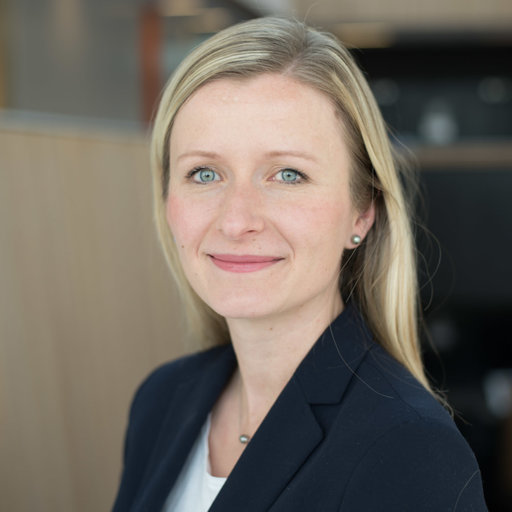
NMIN project involvement:
Co-Investigator: Nanoparticle formulations for anti-inflammatory IDR peptides
Collaborator: GeneCure: Application of lipid nanoparticle technology to gene therapies in a variety of tissues
Collaborator: Lipid Nanoparticle-mediated Immunotherapy for Pseudomyxoma Peritonei
2405 Wesbrook Mall
Vancouver, BC V6T 1Z3
Tel: 604-822-2466
sarah.hedtrich@ubc.ca
Website
Aly Karsan
Professor, University of British Columbia
Collaborator
Dr. Karsan is a Professor of Pathology and Laboratory Medicine at the University of British Columbia, and Medical Director of the Cancer Genetics Laboratory and the Centre for Clinical Genomics in the Genome Sciences Centre, at the British Columbia Cancer Agency.
Dr. Karsan is internationally recognized in the field of blood cancer research. His translational research lab has generated seminal work on the role of noncoding RNAs and innate immune signaling in blood cancers. He currently leads a team of six principal investigators in a Terry Fox Research Institute Program Project in acute leukemia research.
Dr. Karsan is also a recognized leader in delivering clinical genomic assays. He established the first clinically-accredited Next Generation Sequencing lab in Canada, the Centre for Clinical Genomics (CCG), which was among the first in the world. The CCG delivers cancer genomic testing to the entire population of BC. This pioneering work in using next generation sequencing (NGS) technologies for clinical delivery has led to the development of various novel technologies for clinical genomic testing.
Dr. Karsan’s clinical focus is to bring new genomic technologies into the diagnostic arena. His research interests focus on functional genomics in myeloid malignancies with a particular interest in the myelodysplastic syndromes (MDS). His recent research has revolved around the role of microRNAs and innate immune signaling pathways in MDS.

NMIN project involvement:
Collaborator: Targeting myeloid leukemia with nanomedicines
Vancouver, British Columbia
V5Z 1L3
Tel: 604-675-8033
akarsan@bcgsc.ca
Website
Christian Kastrup
Associate Professor, University of British Columbia
Theme 2 Co-Leader; NanoCore Co-Leader
Dr. Kastrup is an Associate Professor in the Michael Smith Laboratories and Department of Biochemistry & Molecular Biology at the University of British Columbia, and is a member of the Centre for Blood Research and Associate Member of the School of Biomedical Engineering.
Dr. Kastrup’s research utilizes biochemical engineering to solve problems related to hemostasis and thrombosis. He and his trainees investigate, utilize, and mimic the biochemistry and biophysical dynamics of blood coagulation to create innovative materials that perform new functions inside of blood vessels, and work to develop novel treatments for severe hemorrhage. They use a variety of biochemical assays, genetic engineering tools, blood samples, biomaterial synthesis, microfluidics, imaging, and small and large animal models to answer a variety of research questions.
Dr. Kastrup’s accolades include the Sir Major Banting Award from the True Patriot Love Foundation, being a MSFHR Scholar, a Fellow at the Canadian Institute for Military and Veteran Health Research, and receiving a CIHR Foundation Grant. He is the Chief Scientific Officer and a founding member of CoMotion Drug Delivery Systems, Inc., a UBC-based start-up, which is currently working to develop a hemostatic agent for severe combat and surgical hemorrhage.

NMIN project involvement:
PI: NMIN Theme 2 Research & KTEE Accelerator
PI: Preclinical regulatory plan for CounterFlow-Gauze
Co-Investigator: NanoCore
Collaborator: GeneCure
2185 East Mall
Vancouver, BC V6T 1Z4
Tel: 604-827-3749
ckastrup@msl.ubc.ca
Website
Shana Kelley
Professor, University of Toronto
Theme 3 Leader
Dr. Shana Kelley is a Distinguished Professor of Biochemistry, Pharmaceutical Sciences, Chemistry, and Biomedical Engineering at the University of Toronto, where she is also the academic director of the Precision Medicine Initiative (PRiME).
Dr. Kelley's research interests are the development of new technologies for clinical diagnostics and drug delivery.
Dr. Kelley’s work has been recognized with a variety of distinctions, including being named one of ‘Canada’s Top 40 under 40′, a “Top 100 Innovator” by MIT’s Technology Review, and a NSERC E.W.R. Steacie Fellow. She has also been recognized with the Pittsburgh Conference Achievement Award, an Alfred P. Sloan Research Fellowship, a Camille Dreyfus Teacher-Scholar award, a NSF CAREER Award, a Dreyfus New Faculty Award, and the 2011 Steacie Prize. She is a founder of two molecular diagnostics companies, GeneOhm Sciences (acquired by Becton Dickinson in 2005) and Xagenic Inc.

NMIN project involvement:
PI: Development of an integrated chip for exosome analysis in cancer
Leslie Dan Faculty of Pharmacy
144 College Street
Toronto, ON, M5S 3M2
Tel: 416-978-8641
shana.kelley@utoronto.ca
Website
Aneal Khan
Professor, University of Alberta
Collaborator
Dr.Khan is a Professor in the Department of Medical Genetics and Pediatrics at the University of Calgary and the President and CEO of Discovery DNA.
His research interests include interventional therapies for rare diseases such as gene therapy and investigational new drugs. He focuses on a variety of ultra-rare diseases, but has experience with lysosomal storage diseases, mitochondrial diseases, genetic cardiomypathies and metabolic bone diseases. He has a focus on clinical trials for new drugs from Phase I through Phase IV studies and recruits patients at a national level. His company, Discovery DNA, specializes in exome, genome and mitochondrial DNA rapid sequencing.

NMIN project involvement:
Collaborator: GeneCure: Application of lipid nanoparticle technology to gene therapies in a variety of tissues
3rd Floor Metabolic Clinic
2888 Shaganappi Trail NW
Calgary, AB T3B 6A8
Tel: 403-955-7587
khaa@ucalgary.ca
Website
Afsaneh Lavasanifar
Professor, University of Alberta
Associate Scientific Director
Dr. Lavasanifar is Professor in the Pharmaceutical Sciences division of the Faculty of Pharmacy and Pharmaceutical Sciences at the University of Alberta. She is also the Scientific Chief Officer and Vice President of Meros Polymers Inc., a spinoff company established on basis of technology developed her lab.
Her research is focused on the design and development of polymer-based delivery systems that can increase solubility, modify the pharmacokinetic pattern, reduce toxicity and increase the efficacy of different therapeutic agents. The ongoing research projects in her laboratory include development of novel polymeric nano-carriers and stimulus responsive gels for application in cancer chemo and immunotherapy or deliver of anti-inflammatory agents. She is an inventor in 5 patent/patent applications on novel polymer-based formulations for drug and siRNA delivery.
Dr. Lavasanifar is the Associate Editor of Molecular Pharmaceutics and a member of the Editorial Board of Materials Sciences and Applications and Iranian Polymer Journal.
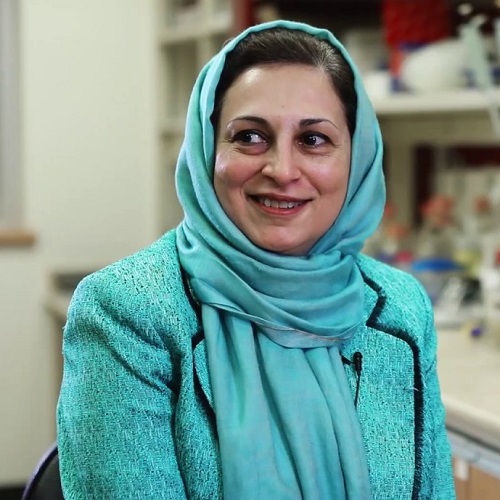
NMIN project involvement:
PI: Nano-delivery of Novel Inhibitors of DNA Repair for Enhanced Therapy in Head and Neck cancer
Collaborator: NanoCore: Translational NanoMedicine Formulation and Characterization Core Facility
Medical Sciences Building
University of Alberta
8613 – 114 St.
Edmonton, Alberta T6G 2H7
Tel:780-492-2742
afsaneh@ualberta.ca
Website
Blair Leavitt
Professor, The University of British Columbia
Researcher
Dr. Leavitt is Interim Director and Senior Scientist at the Centre for Molecular Medicine and Therapeutics at the BC Children's Hospital; full Professor in the Department of Medical Genetics and the Department of Medicine at the University of British Columbia (UBC); the UBC Director of the Transgenic Core Facility; the UBC Neurogenetics Director of Research; and a Neurologist in the Centre for Huntington Disease.
A scientist and physician, Dr. Leavitt's laboratory develops new treatments for neurodegenerative diseases such as Huntington’s disease using transgenic mouse models.
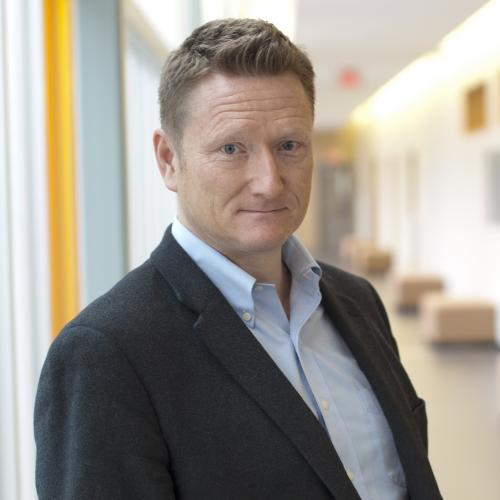
NMIN project involvement:
PI: Development and Optimization of LNP-based Gene Therapy Approaches in the Brain
Collaborator: NanoCore: Translational NanoMedicine Formulation and Characterization Core Facility
Sabrina Leslie
Associate Professor, The University of British Columbia
Researcher
Dr. Leslie is Associate Professor in the Michael Smith Labs and Physics Department of the University of British Columbia. She is also CSO and President of ScopeSys and co-inventor of the CLiC technology which, by trapping single particles or molecules in custom compartments, enables imaging with statistics and without the need for tethering chemistry.
She previously led a single-molecule microscopy group at McGill University which pioneered the research and development of the CLiC technology, while investigating DNA, protein, and nanoparticle applications.
She earned her B.Sc. in Honours Math and Physics at UBC in 2002 and Ph.D. in Physics at U.C. Berkeley in 2008. From 2009 to 2011, she was a Mary Fieser post-doctoral fellow in the Department of Chemistry and Chemical Biology at Harvard, where she co-invented and began to develop the CLiC technology with Adam Cohen.
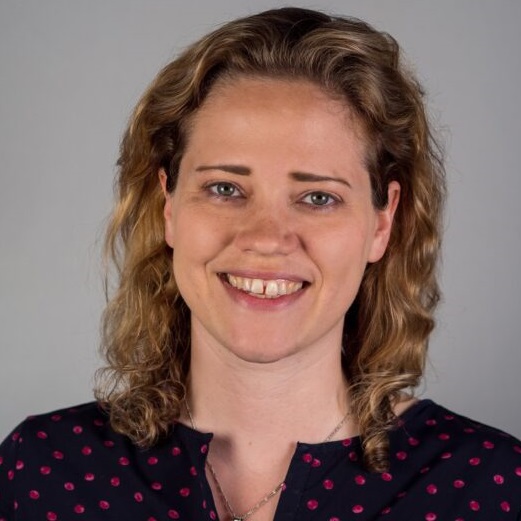
NMIN project involvement:
Ada Leung
Director of Operations, Cuprous Pharmaceuticals
Researcher
Dr.Leung is a Founder of, and Director of Operations at, Cuprous Pharmaceuticals, and is an inventor of the Metaplex technology.
She completed her PhD at the University of British Columbia, where she was awarded a prestigious Vanier Canada Graduate Scholarship. Her thesis work involved identifying and validating novel targets that could be used to enhance platinum-based chemotherapy against non-small cell lung cancer.
In the final years of her PhD, Dr. Leung undertook another project which contributed to the development of the Metaplex technology. She recently completed a Mitacs Elevate Fellowship under the supervision of Dr. Chris Orvig.
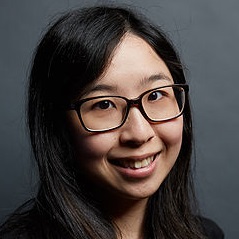
NMIN project involvement:
John Lewis
Professor, University of Alberta
Researcher
Dr. Lewis is Frank and Carla Sojonky Chair in Prostate Cancer Research and Professor in the Department of Oncology at the University of Alberta.
His research interests are in nanotechnology and imaging as they relate to chronic diseases such as aging and cancer. His research group is focused mainly on the study of the metastasis of cancer using advanced live imaging techniques.
The Lewis lab utilizes real-time intravital imaging of the tumour microenvironment to learn about the critical steps of cancer progression, including the growth of new blood vessels and the gain of tumour cell motility that leads to metastasis. Dr. lewis and his team are investigating novel nanoparticles being developed for the early detection of prostate cancer, drug delivery, and the in vivo study of tumour cell invasion and metastasis.
Shyh-Dar (Star) Li
Professor, The University of British Columbia
Theme 1 Co-leader; PharmaCore Co-leader
Dr. Shyh-Dar (Star) Li is Professor at the Faculty of Pharmaceutical Sciences, Chair of the Nanomedicine and Chemical Biology Research & Training Program, and holds the Angiotech Professorship in Drug Delivery, at the University of British Columbia.
Dr. Li's research focuses on developing innovative drug delivery technologies to enhance drug targeting, with a particular interest in lipid and polymer-based nanoparticles. His team has successfully licensed three drug delivery technologies to industry, with one for brain cancer therapy in phase II trials.
Dr. Li has won several research awards, including the 2014 AFPC New Investigator Award, the 2013 AAPS New Investigator Award in Pharmaceutics and Pharmaceutical Technologies, the 2013 CIHR New Investigator Award, the 2013 CSPS Early Career Award, and the 2012 Prostate Cancer Foundation Young Investigator Award.

Tel: 604-827-0675
shyh-dar.li@ubc.ca
Website
David Lillicrap
Professor, Queen's University
Researcher
Dr. Lillicrap is a professor in the Department of Pathology and Molecular Medicine at Queen's University. He is the recipient of a Senior Canada Research Chair in Molecular Hemostasis, and a Career Investigator Award from the Heart and Stroke Foundation of Ontario.
Dr. Lillicrap's research program has focused, for the past 18 years, on the genetics of blood coagulation, and in particular, on the common inherited bleeding disorders, hemophilia and von Willebrand disease. These conditions represent excellent models of monogenic and complex genetic traits, respectively.
Dr. Lillicrap's research program has three major themes: the investigation of various genetic strategies for the treatment of inherited factor VIII deficiency (hemophilia A); the genetic control of von Willebrand factor biosynthesis and the application of molecular genetic information to the clinical management of these inherited bleeding diseases.

NMIN project involvement:
David Liu
Professor, Harvard University
Collaborator
Dr. Liu is the Richard Merkin Professor, Director of the Merkin Institute of Transformative Technologies in Healthcare, and Vice-Chair of the Faculty at the Broad Institute of Harvard and MIT; Thomas Dudley Cabot Professor of the Natural Sciences and Professor of Chemistry and Chemical Biology at Harvard University; and Howard Hughes Medical Institute Investigator.
Dr. Liu's research accomplishments have earned distinctions including the Ronald Breslow Award for Biomimetic Chemistry, the American Chemical Society Pure Chemistry Award, the Arthur C. Cope Young Scholar Award, and awards from the Sloan Foundation, Beckman Foundation, NSF CAREER Program, and Searle Scholars Program. In 2016 he was named one of the Top 20 Translational Researchers in the world by Nature Biotechnology, and in 2017 was named to the Nature’s 10 researchers in world and to the Foreign Policy Leading Global Thinkers.
Dr. Liu's research integrates chemistry and evolution to illuminate biology and enable next-generation therapeutics. His major research interests include the engineering, evolution, and in vivo delivery of genome editing proteins such as base editors and prime editors to study and treat genetic diseases; the evolution of proteins with novel therapeutic potential using phage-assisted continuous evolution (PACE); and the discovery of bioactive synthetic small molecules and synthetic polymers using DNA-templated organic synthesis and DNA-encoded libraries. Base editing (named one of four 2017 Breakthrough of the Year finalists by Science), prime editing, PACE, and DNA-templated synthesis are four examples of technologies pioneered in his laboratory. He is the scientific founder or co-founder of seven biotechnology and therapeutics companies, including Editas Medicine, Pairwise Plants, Exo Therapeutics, Beam Therapeutics, and Prime Medicine.
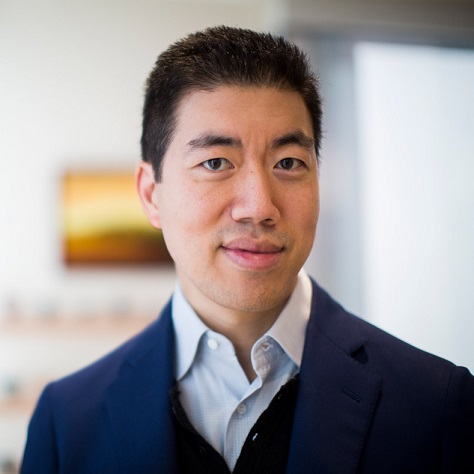
12 Oxford Street
Cambridge, MA 02138
USA
Tel: 617-496-1067
liu@chemistry.harvard.edu
Website
Larry Lynd
Professor, University of British Columbia
Researcher
Dr. Lynd (PhD, BSP) is an epidemiologist/health outcomes researcher, a Professor and the Director of the Collaboration for Outcomes Research and Evaluation (CORE), and Associate Dean Research, Faculty of Pharmaceutical Sciences at The University of British Columbia (UBC).
He is also a Scientist at the Centre for Health Evaluation and Outcome Sciences at the Providence Health Research Institute, an Associate of the UBC School of Population and Public Health, and a Scholar at the Peter Wall Institute for Advanced Studies. He was appointed as the economics expert on the B.C. Ministry of Health Services Expensive Drugs for Rare Diseases Committee, and is Fellow of the Canadian Academy of Health Sciences.
His research focuses on the integration of epidemiologic and health economic analyses on health outcomes, including risk-benefit analysis and pharmacoepidemiology, to inform practice, policy, and research. His primary areas of research include the testing and treatment of rare diseases.
